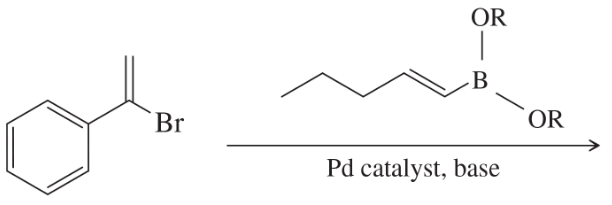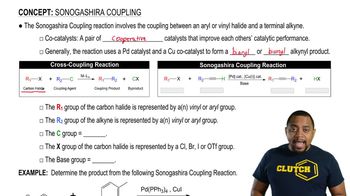Multiple Choice
In the electrophilic aromatic substitution reaction of benzene, which of the following is the most common electrophile?


 Verified step by step guidance
Verified step by step guidance Verified video answer for a similar problem:
Verified video answer for a similar problem:



 11:5m
11:5mMaster EAS Reactions Overview with a bite sized video explanation from Johnny
Start learning